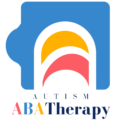Careers In ABA Therapy
The field of Applied Behavior Analysis (ABA) has gained prominence for its effectiveness in addressing a range of behavioral challenges. In this comprehensive guide, we will delve into the educational pathways, certification processes, and job opportunities available for individuals interested in pursuing a career in ABA.
Exploring Careers in ABA Therapy
Are you passionate about making a difference in the lives of children with autism spectrum disorder? Do you aim to become a behavior technician or board-certified behavior analyst in the field of applied behavior analysis (ABA) therapy? AAT invites you to join our team and embark on a fulfilling career path dedicated to providing therapy for autism.
A career in ABA therapy is deeply rewarding, especially for those who aspire to make a difference in the lives of children and families affected by autism spectrum disorder. At AAT, we’re committed to empowering aspiring behavior technicians and certified behavior analysts, providing a platform for growth and impact.
As a behavior technician, you’ll have the opportunity to work directly with children with autism, providing in-home ABA therapy and behavioral support. You’ll be an integral part of their development, implementing strategies designed by board-certified behavior analysts to assist in skill-building and addressing behavioral challenges.
For board-certified behavior analysts, AAT provides a platform to apply your expertise in behavioral health. Join our team and lead the way in creating therapy programs tailored to the needs of children with autism spectrum disorder. Collaborate with a team dedicated to making a difference in the lives of families in Texas.
Supervision and Training
Comprehensive Supervision for Career Growth
At AAT, we understand the importance of comprehensive supervision and training for our team members. For those beginning their careers as registered behavior technicians or aspiring to become board-certified behavior analysts, our program offers a structured and supportive environment. We ensure that each team member receives the necessary guidance and mentorship, adhering to the highest standards of applied behavior analysis.
Ongoing Professional Development
We provide ongoing training and mentorship to registered behavior technicians and certified behavior analysts. Our supervision programs involve on-site observation, live video sessions, and group supervision to enhance skills and maintain the highest quality of care. Join our team and benefit from a supportive network of experienced behavior analysts, fostering growth in your career in ABA therapy.
Education in ABA
High School Diploma
Embarking on a career in ABA often begins with a high school diploma. Developing strong communication and interpersonal skills during this foundational period is crucial for success in the field.
Bachelor’s Degree
A Bachelor’s degree, preferably in psychology, special education, or a related field, is the next step. Many ABA professionals start their journey with a solid educational foundation at this level.
Master’s Degree
For those aiming for advanced roles and leadership positions, pursuing a Master’s degree in ABA or a related field becomes imperative. This level of education opens doors to specialized areas within ABA and equips individuals with in-depth knowledge.
Certification in ABA
Board Certified Behavior Analyst (BCBA)
The pinnacle of ABA certification is achieving the status of a Board Certified Behavior Analyst (BCBA). This requires a master’s degree, extensive supervised experience, and successful completion of the BCBA examination. BCBA professionals design and supervise behavior analysis programs, create treatment plans, and often work in clinical, educational, or research settings.
Registered Behavior Technician (RBT)
An entry-level certification, the RBT credential is ideal for those with a high school diploma or equivalent. RBTs work under the supervision of BCBA professionals, implementing behavior intervention plans, collecting data, and supporting individuals with behavioral challenges.
ABA Therapist Job Opportunities
ABA Therapist Job Description
ABA therapists play a crucial role in implementing behavior intervention plans, conducting assessments, and working directly with individuals to improve their behaviors and skills. They may work in schools, clinics, or provide in-home services.
Job Requirements
– Education: A high school diploma is the minimum requirement, but some employers may prefer candidates with associate or bachelor’s degrees.
– Certification: Many positions seek candidates with RBT certification, showcasing a commitment to ethical practices in ABA.
– Experience: Entry-level positions often require minimal experience, making them accessible for those new to the field.
Career Progression
As ABA therapists gain experience and pursue additional education, they may advance into roles such as lead therapist, clinical supervisor, or program manager. ABA offers a diverse range of career paths based on individual interests and professional goals.
Training and Certification Opportunities
ABA Therapist Training
Training programs for ABA therapists focus on applied skills, ethical considerations, and practical applications of behavior analysis. Some employers provide on-the-job training, while others may require completion of specific ABA training programs.
Continuing Education
Continuing education is essential in ABA to stay abreast of the latest research, techniques, and ethical standards. Professionals may attend workshops, conferences, or pursue additional certifications to enhance their skills and knowledge.
Other Available Openings
Are you a Board Certified Behavior Analyst (BCBA – Board) with a passion for helping children with autism? Do you feel behavioral therapy is the way forward to make children happy and self-sufficient? Do you love to implement behavioral therapy interventions and support for kids toward a brighter future?
ABA in Mental Health
ABA and Mental Health Counseling
The intersection of ABA and mental health counseling provides a holistic approach to addressing behavioral and emotional challenges. Professionals in this field may work with individuals diagnosed with autism, ADHD, anxiety disorders, and more.
Collaboration with Other Professions
Collaboration with occupational therapists, special education professionals, and other mental health experts is common in ABA. This interdisciplinary approach ensures comprehensive and individualized support for those in need.
Join Autism ABA Therapy Today
If you’re passionate about providing therapy for autism and seeking a rewarding career in ABA therapy, AAT is the place to be. Apply now and find a location where you can make a significant impact on the lives of children with autism spectrum disorder. Join our team and become a part of a community dedicated to creating positive changes through applied behavior analysis.


